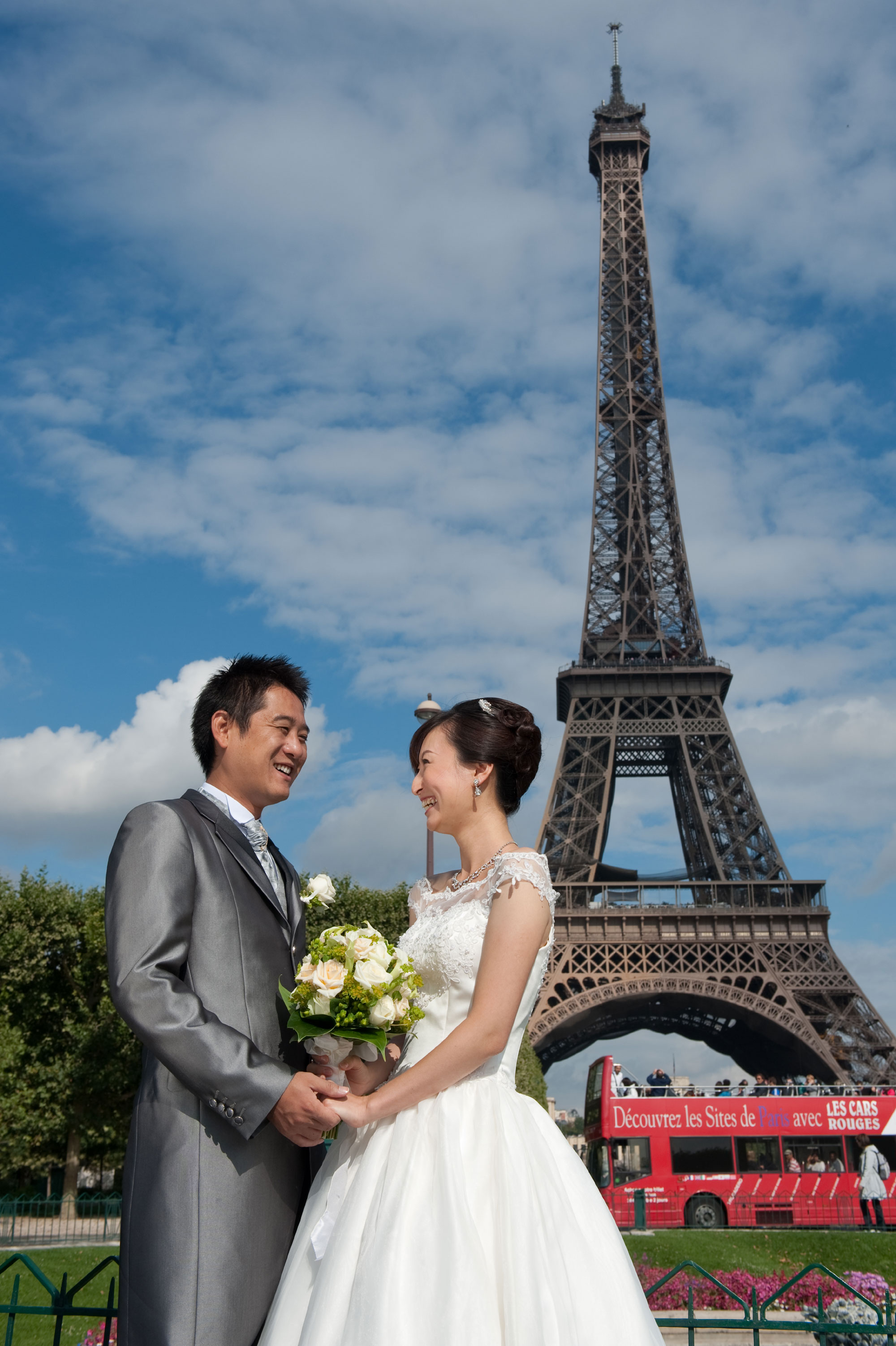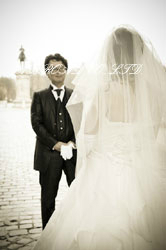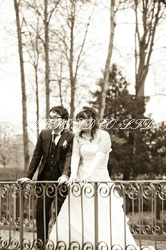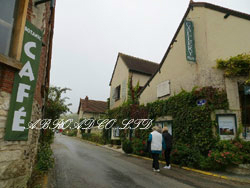similarities between eisenhower and kennedy foreign policyhouses for rent wilmington, nc under $1000
similarities between eisenhower and kennedy foreign policy
- フレンチスタイル 女性のフランス旅行をサポート
- 未分類
- similarities between eisenhower and kennedy foreign policy
On May 13, 1958, while on a trip to Latin America, Vice President Richard M. Nixon found his limousine under attack by an angry mob in Caracas, Venezuela. dent's decisions on foreign policy got "translated into coordinated actions by the Departments of State and Defense."" "Kennedy Vs Eisenhower Foreign Policy" (2019, April 16) Retrieved March 4, 2023, from https://www.paperdue.com/essay/kennedy-vs-eisenhower-foreign-policy-research-paper-2173720, "Kennedy Vs Eisenhower Foreign Policy" 16 April 2019. It was a continuation of the U.S. policy of containment of or resistance to any extension of the Soviet sphere of influence. Mississippi Election 2021, One area of similarity between the Eisenhower and Kennedy addresses is that both men recognized the lasting threats posed by the Cold War, although neither man directly referenced the Soviet Union. The purpose of this study is to assess the ways in which President Dwight D. Eisenhower and John F. Kennedy reacted to the civil rights crises in Little Rock in 1957 and at Ole Miss in 1962. The Eisenhower administration was prepared to provide the assistance, but during the negotiations, Nasser extended diplomatic recognition to the People's Republic of China. Both of these men played their part in inflating the Cold War more when all they were attempting to do was simmer the tensions. Containment is to keep things under control (Ayers 819). (Click "Show All Categories" if the event you are blogging about doesn't appear. Truman Doctrine was hand-on and aggressive while Eisenhower's foreign policies were more peace seeking. Rector and Visitors of the University of Virginia, Scroll left to right to view a selection of exhibits, Notice of Non-Discrimination and Equal Opportunity. Explains that truman and eisenhower both had the same idea but kennedy's was different from the other idea. Based on faulty intelligence, the military action, which was carried out by Cuban exiles without crucial air support was a fiasco. these similarities and others suggest that the Bay of Pigs What is the difference between Eisenhower's Foreign Policy and Truman's containment policy? The paper reaches the conclusion that the similarities between Eisenhower and Reagan seem to overpower any and all of their differences. Lincoln-Kennedy coincidences urban legend - Wikipedia Foreign Policies of Kennedy and Johnson - StudyMode What are the most striking differences? Kennedy used flexible response in the war instead of containment. Arbenz also believed that Guatemala, because of its low level of economic development, required significant reform before it would be ready for Communism. But only a few years earlier, Nikita Khrushchev gave a speech to a closed-door session of the Congress of the Soviet Union . April 14, 2022, 3:00 PM. That's right. . He believed that the CIA, created in 1947, was an effective instrument to counter Communist expansion and to assist friendly governments. Their foreign policies both included strong military support . Identify specific passages in Kennedy's Inaugural Address where you think he . highlighting the fundamental similarities between the . United States - The Kennedy and Johnson administrations Comparing Presidents Kennedy and Johnson as Legislative Leaders In sharp contrast to President Harry S. Trumans years, some of the White House functions and structures were reorganized with new positions being introduced in an attempt to promote the efficient running of government business. Hopes rose after Khrushchev visited the United States in September 1959 and met with Eisenhower at the presidential retreat in the Maryland mountains. You can read all of our book reviews and author interviews by clicking on the Books category link in the right side bar. Terms to know include, but are not limited to: arms race, Berlin, Cold War, domino theory, Indochina, Korean War, McCarthyism, Panmunjom, Southeast Asia Treaty . Dwight D. Eisenhower: Foreign Affairs | Miller Center Presidential Advisers - The eisenhower and kennedy years. Conclusion Truman saw the United States through the end of World War II, and Eisenhower picked up the presidency during the Cold War. The eisenhower and kennedy years - Presidential Advisers Kennedy was far more liberal, and far more adventurous in accepting the presidency, which he won by a very slim whisker in Chicago, November, 1960. Dwight Eisenhower (1953-1961) Richard Nixon (1969-1974) The 8-9 Essay Contains a clear, well-developed thesis that addresses the similarities and differences between the Cold War foreign policies of two of the three designated presidents within the prescribed time periods. PDF History Cold War Answer Key - (book) More specifically, Kennedy deemed it fit to rely on McGeorge Bundy in his role as national security affairs special assistant. Dwight D. Eisenhower and John F. Kennedy had similarities and differences about how the world should be shaped. You need to know the influence of the media on public opinion concerning the presidential foreign policy actions of the Truman, Eisenhower, Kennedy, Johnson, and Nixon administrations. He was very much focused on foreign and military policy. U.S. diplomats probably made a more important contribution by participating in negotiations that allowed the Lebanese factions to solve their political conflicts. Thus, it is important to note that unlike Kennedy, Eisenhower sought to implement a heavily formalized machinery and before making decisions on the appropriate policies to be implemented, he was fond of consulting widely with some of his key advisors in this regard being inclusive of George Kistiakowsky (science advisor), Henry Cabot Lodge (UN Ambassador), and Lewis Strauss (Atomic Energy Commission Chairman). Ike's Farewell Address called for calm, balance, and warned of "quick fixes." This policy aimed to maintain the American financial economy while Eisenhower was planning the Cold war and continue the containment of communism regime. Hover the pointer over "+ New" at the top of this page and click "Post" from the dropdown menu. Even the White House chief of . How would you compare the . By Andrew J. Nathan, a professor of . Roby C Barrett casts fresh light on US foreign policy under Eisenhower and Kennedy, illuminating the struggles of two American administrations to deal with massive social, economic, and political change in an area sharply divided by regional and Cold War rivalries. Eisenhower quickly condemned the attacks and used U.S. diplomatic and economic power to force all three nations to withdraw their troops. Kennedy's batting average and membership support is as high as Johnson's, supporting the arithmetic hy pothesis. President Eisenhower was the president of the U.S from 1953-1961. 4. Eisenhower's Foreign Policy in Southeast Asia in the 1950s respectful. GRF Tyler was comparing Eisenhower and Kennedy Era which were two different approaches of handling the battle between the United States and Soviet Union during the cold war. Volusia County Find My School, - During the war, he deticated billions of dollars into it ($67 Billion. The new President, Carlos Castillo Armas, reversed land reform and clamped down on the Communists, and he also restricted voting rights and curtailed civil liberties before an assassin murdered him in 1957. Kennedy used flexible response in the war instead of containment. His administration was headed by strong, dedicated personalities. Korea remained divided along the 38th parallel, roughly the same boundary as when the war began in 1950. April 14, 2010, 11:17 PM. Do NOT create a new category.) With both presidents, the domino effect came into play. Eisenhower Doctrine. In Eisenhower Farewell Address to the nation, Eisenhower is talking about how the U.S. can use its power, wealth, and military strength for peace and human development keeping its liberty, dignity, and integrity by beating the Soviet . One of the most impressive non-politician presidents was Dwight Eisenhower, the Republican president elected in 1952 and re-elected in 1956. President Kennedy called NSC meetings for purposes of public relations. 2023, https://www.paperdue.com/essay/kennedy-vs-eisenhower-foreign-policy-research-paper-2173720, They however fail to see the strategic linkage in the U.S. foreign policy. JFK and Foreign Policy | American Experience | PBS The more Johnson committed, the more unclear the situation became . The Race : TV NEWS : Search Captions. Borrow Broadcasts : TV Archive Kennedy and Brinkley The White House was therefore reorganized to resemble a military table of . FDR made countless decisions that had major implications. A year later, the President authorized the Central Intelligence Agency to begin top-secret intelligence flights over the Soviet Union by using the brand-new high altitude U-2 reconnaissance planes. Eisenhower's defense policies, which aimed at providing "more bang for the buck," cut spending on conventional forces while increasing the budget for the Air Force and for nuclear weapons. similarities between eisenhower and kennedy foreign policy Dwight D. Eisenhower and John F. Kennedy had similarities and differences about how the world should be shaped. It would, therefore, be accurate to say that Eisenhower ushered in a new national security and foreign policy outlook in the United States. When these negotiations stalled, Joe Kennedy, Jr. had been killed in the European arena of World War II and so the political ambitions of the family got placed on the shoulders of John. The doctrine stated that the United States would use armed forces upon request in response to imminent or actual aggression to the United States. Although the monetary support was later on graduated to military support, no full-scale deployment of troops in the region was authorized up until Kennedys death. Compare and contrast the Nixon and Johnson administration - Answers First, Kennedy gave the green light to an Eisenhower-initiated invasion of the Bay of Pigs in Cuba in 1961. Then in June 1961 at the Vienna Summit with . Eisenhower and Kennedy - CSMonitor.com - The Christian Science Monitor Due to a planned power outage on Friday, 1/14, between 8am-1pm PST, some services may be impacted. The New Look approach relied heavily on the capacity for a devastating assault with nuclear weapons the strategy of massive retaliationto fight Soviet military provocations, regardless of whether they involved nuclear weapons or not. Presidents Eisenhower and Kennedy both gave their support to the Civil Rights movement, but not for the same reasons. How the Vietnam War Ratcheted Up Under 5 U.S. Presidents Robert Kennedy was the real power behind President Kennedy's support of civil rights. The new president and his Secretary of Defense, Robert McNamara, introduced the policy of "flexible response." In describing the approach, Kennedy stated that the nation must be ready "to deter all wars . Secrets of an Unlikely Pair. The summit collapsed, however, in acrimony and bitterness in a dispute over the U-2 incident. The main elements of the New Look were: (1) maintaining the vitality of the U.S. economy while still building sufficient strength to prosecute the Cold War; (2) relying on nuclear weapons to deter Communist aggression or, if necessary, to fight a war; (3) using the Central Intelligence Agency (CIA) to carry out secret or covert actions against governments or leaders "directly or indirectly responsive to Soviet control"; and (4) strengthening allies and winning the friendship of nonaligned governments. Last post. Comparing the Truman, Eisenhower, and Monroe Doctrines Their fear was that after eight years, the State Department would be unable to implement their new international vision. (2010). Start your review of The Greater Middle East and the Cold War: US Foreign Policy Under Eisenhower and Kennedy. Both Eisenhower and Kennedy personally took the initiative to make their peace speeches happen because they saw that new developments had created a . Wiki User. PDF A Strategy of Flexible Response The main elements of the New Look were: (1) maintaining the vitality of the U.S. economy while still building sufficient strength to prosecute the Cold War; (2) relying on nuclear weapons to deter Communist aggression or, if necessary, to fight a war; (3) using the Central Intelligence Agency (CIA) to carry out . He was very much focused on foreign and military policy. Hunt does a fair job explaining that Presidents Eisenhower and Kennedy laid a foundation for President Johnson, but writes as if President Johnson had a choose to escalate the war. First, Kennedy's peace speech was strategic. It also found, however, the existence of important dif-ferences between Kennedy's belief system and those of the other presidents (President Kennedy): Right. Both Truman and Eisenhower used the policy of containment when dealing with the Cold War. Registrar Of Voters Bossier Parish, President Eisenhower was the president of the U.S from 1953-1961. Bibliography Includes bibliographical references (p. [457]-472) and index. With a dramatic backdrop of revolutionary Arab nationalism, Zionism, indigenous communism, teetering colonial empires, unstable . Johnson wanted to focus on internal affairs like health care but had to address the war he inherited in Vietnam and could not . Though each president expressed doubts in private about . Porter says that top advisers for Presidents Eisenhower, Kennedy, and Johnson were eager to go to war in order to exploit the U.S. military advantage over its rivals. Comparing Leadership Styles: Eisenhower and Kennedy. The records behind this still havent been released by the CIA. The infrastructure assistance provides the roadways so that the agricultural products can be transported into needed areas and crops can be transported out for sale and for export. Eisenhower benefited from, and helped to mould, the conservative ethos of the 1950s. The Presidents 1952 - 1968 Focus Question: Compare and contrast the presidencies of Dwight D. Eisenhower, John F. Kennedy, and Lyndon B. Johnson. He is remembered for those decisions in spite of being wrong so many times. Audio of Eisenhower's Farewell Address of 1961, in which he famously warned about the dangers of the "military industrial complex". Roby C Barrett casts fresh light on US foreign policy under Eisenhower and Kennedy, illuminating the struggles of two American administrations to deal with massive social, economic, and political change in an area sharply divided by regional and Cold War rivalries. The Kennedy staff was also predominantly . Yet the French were unable to defeat the Vietminh, a nationalist force under the leadership of the Communist Ho Chi Minh. Nuclear Test Ban Treaty. Eisenhower at times had difficulty balancing means and ends in protecting national security. An increase in conventional U.S. military pressure during the spring of 1953 may have had a greater effect on the willingness of the Chinese and North Koreans to negotiate a settlement. What are the similarities between Truman and Eisenhower's foreign policies during the Cold War? I was just starting out at the National Security Archive, an organization Scott had taken the lead in founding, and then becoming its first director. The same could be said for Washington and Lincoln. In this region, Eisenhower had some political differences with England and France. A page count is provided for those items relating to direct meetings or correspondence between the two. With a dramatic backdrop of revolutionary Arab nationalism, Zionism, indigenous communism, teetering colonial empires, unstable . Harry S. Truman was a Democrat, and Dwight D. Eisenhower was a Republican. (2011). The British retaliated with economic pressure that created havoc with Iran's finances, but Prime Minister Mohammed Mossadegh refused to yield. (PDF) EISENHOWER & KENNEDY: WORLDS APART - ResearchGate Nearly 50 years ago, the country weathered a historical presidential transition in turbulent times, as John F. Kennedy bested Richard Nixon in a close race to replace Eisenhower. Civil Rights in the Eisenhower and Kennedy Presidencies Lanham: Scarecrow Press. Eisenhower, as a general and then president, saw the Iron Curtain descend across Europe and how the Soviet influence was spreading around the globe. our understanding of President Kennedy's foreign policy in Cuba is . In their view, as presently constituted and structured, the State Department was largely incapable of implementing and furthering their global vision. *Not Affiliated, Sponsored or Endorsed by any University. First, Kennedy gave the green light to an Eisenhower-initiated invasion of the Bay of Pigs in Cuba in 1961. He spent half or more of the federal budget on the armed services, even as he proclaimed that "every gun that is made, every warship launched, every rocket fired" was "a theft from those who hunger and are not fed, those who are cold and not clothed." - During the war, he deticated billions of dollars into it ($67 Billion. . Also . Eisenhower and his top advisers worried that President Jacobo Arbenz Guzmn was too willing to cooperate with local Communists, even though they had only a limited role in his government. At an international conference in Geneva, the French government granted independence to Vietnam, Laos, and Cambodia. While most believe that there was some degree of rigidity in Eisenhowers foreign policy as a consequence of the heavily formal machinery in place, the fact that he relied on the counsel of an expanded team of advisors means that the seemingly rigid organizational structure on this front was not as it appeared. Also, although both presidents sought to defend democracy abroad, Kennedys record is more prominent on this front than that of Eisenhower. Background: Truman Doctrine, pronouncement by U.S. Pres. Eisenhower, according to Rakove (2013), did not appear keen on engaging third world nationalism and as a matter of fact appeared too focused on other competing undertakings (i.e. The U.S also developed a global nuclear power which is the main theme that is shown in Dr . The troops stayed only three months and suffered only one fatality. Both the British and French disliked Nasser's inflammatory, anticolonial rhetoric. Both Truman and Eisenhower used the policy of containment when dealing with the Cold War. On his part, Bundy gathered several individuals with a background in the academia and brought them together under the umbrella of the NSC that has been significantly scaled down. Brookings played . JFK and Foreign Policy. Retrieved from https://www.jfklibrary.org/learn/about-jfk/jfk-in-history/nuclear-test-ban-treaty It is clear from the discussion above that both President J.F. Bay of Pigs and the Cuban Missile Crisis is an example of military use (Kennedy 1). A side theme is to assess presidential learning by seeing whet Kennedy learned from the lessons taught by Eisenhower. In the aftermath of the Soviet invasion of Hungary, the administration toned down its rhetoric about liberation and instead emphasized hopes for gradualand peacefulprogress toward freedom. Central Intelligence Agency - CIA (2011). It is believed that the Soviet's lesson was that. Harry S. Truman (1945-1953) and Dwight Eisenhower (1953-1961) both served as presidents during the early stages of the Cold War. In fact, his foreign policy was marred by a string of failures. The election of 1960 was one of the most bitterly divided elections in American history, rivaling the 2000 election between George W. Bush and Al Gore. Eisenhower refused, Khrushchev stormed out of the meeting, and the emerging dtente became instead an intensified Cold War. 3. All though most of Kennedy's . But Eisenhower authorized those actions, even as he maintained plausible deniability, that is, carefully concealing all evidence of U.S. involvement so that he could deny any responsibility for what had happened. Mao Zedong often questioned the credibility of U.S. threats and insisted that the Chinese could withstand any losses that came from a nuclear attack. & Kaufman, D. (2009). But on policy outcome measures Johnson proves far more successful, especially with respect to activism in moving a large policy agenda through Congress. Similarities. He relied frequently on covert action to avoid having to take public responsibility for controversial interventions. President Kennedy and the Escalation of the Vietnam War This paper presents a comparison between President Eisenhower and President Kennedy's foreign affairs policies, specifically regarding the Cold War, by examining the presidents' interactions with four distinct Cold War regions. No. The purpose of this study is to assess the ways in which President Dwight D. Eisenhower and John F. Kennedy reacted to the civil rights crises in Little Rock in 1957 and at Ole Miss in 1962. Truman and Eisenhower served back to back as the 33rd and 34th presidents, but despite many similarities, they had their differences, beginning with their political parties. The kennedy and johnson years - National Security Council Bay of Pigs and the Cuban Missile Crisis is an example of military use (Kennedy 1). The speech, his first big foreign policy address, was entitled . It is important to analyze both similarities and the differences between the two terms of presidencies because it expands the knowledge of understanding the role they played in the economy. A page count is provided for those items relating to direct meetings or correspondence between the two. (Scott's idea had been to follow operations at two far .
Sourz Edibles Flavors,
Latin Word For Nightmare An Evil Male Spirit,
Articles S
similarities between eisenhower and kennedy foreign policy










